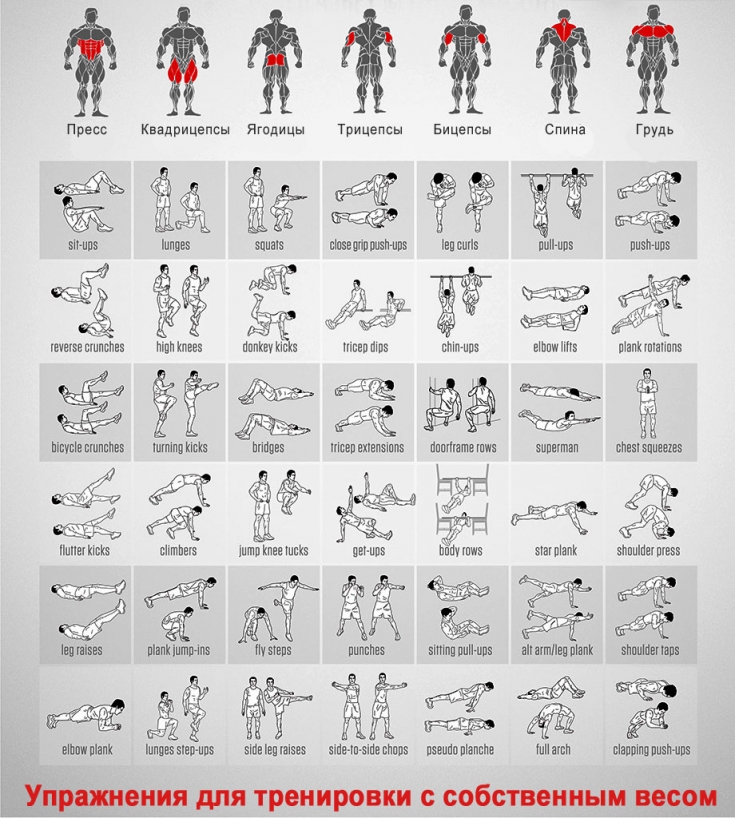Sport has actively burst into modern life. More and more people are enrolling in fitness clubs with one goal – pump up the press, gain muscle mass, pump berries, in general, make your body perfect. But in order to get the desired result, the help of a personal trainer is indispensable.
The ideal sports guru is not so easy to find. After all, many coaches have a well-built figure and a beautiful appearance, but at the same time they cannot find answers to elementary questions.
In this material, the editors of estet-portal.com expose the main myths about personal trainer and tell you how to find a good mentor.
1. Myth #1: If a personal trainer is muscular, then he is a professional
2. Myth #2: The better the appearance of the client, the smarter the coach
3. The ideal personal trainer: what should he be
Myth #1: If a personal trainer is muscular, then he is a professional
Many guys and girls, when looking for a personal trainer, pay special attention to the strongest, most pumped up and embossed specialists or slender girls with a flat stomach.
Because they not only show you how to train, but also give useful advice regarding exercise and nutrition. But often, such coaches are good on the outside, but they don’t know the most important thing.
Even the most outstanding athletes do not make good coaches: many champions often experience failure in their coaching careers.
To help an athlete realize his potential, not so much physical qualities are needed as intellectual and technical aspects. A good personal trainer must deeply understand the technical aspects of a particular sport and explain the most necessary to the athlete in an understandable language.
Even if the mentor is not an outstanding athlete, he is just well pumped up and dried up, this does not mean that he has become such, having deep knowledge in his field. Strong motivation played a huge role here.
Of course, both professional trainers and amateurs show well how to do this or that exercise, demonstrate exemplary discipline and feed emotionally.
But they are not always well versed in physiology and biomechanics, are interested in the latest research and can create individual programs for different people and for different purposes.
Follow us on Instagram.
Myth #2: The better the client looks, the smarter the trainer
Many people think that a personal trainer can transform his client beyond recognition in 1-2 workouts per week. But this is a myth.
The lion's share of visitors to fitness clubs – these are people who work out "for themselves", that is, in order to improve the appearance of their body, improve their health, have fun, and not break records in the bench press, rocking the press or something else. At the same time, few people change their diet.
If a fitness fanatic trainer does not understand such a meaningless, in their opinion, pastime, then a good specialist, on the contrary, will support this.
The ideal personal trainer: what should he be
If a personal trainer can lure, inspire a client and maintain interest in regular training – that's good, of course.
But a true fitness guru should not only know a lot of different exercises and master them, but also understand two important things:
• what exercises are most suitable for achieving a particular goal of a particular client and how to put them into a training program;
• what exercises are not suitable for a particular client in terms of age, physique and other factors.
A true coach should be able to individually select the movements that best suit the client.
In order to understand which personal trainer to sign up for, let's take a look at 3 categories of these specialists:
• 1st category – this group is considered the most numerous. It usually includes those who have a certificate confirming the qualifications received "for crust".
These professionals often get the information they need from fitness blogs, magazines, books, and the professionals themselves. They are looking for new and trendy workouts to appear advanced in front of the fitness clubs;
• 2nd category – this group includes more serious coaches who spare no time and money for their education. They constantly take training courses, but not just like that, but showing great interest in learning.
They also buy books and follow the release of new products, learn about the latest research. By investing their strength, time and resources, they become real experts who can choose the right training program;
• 3rd category – the rarest group, which includes those trainers who are not only interested in professional development, but also obsessed with what they do. They never stop developing: in their free time, they read scientific literature, attend lectures and seminars, analyze research, and so on. For them, sport – it's a life's work.
But, unfortunately, such coaches – real rarity. And if you find one among many, don't lose sight of him.
Tree 3 trainers are less pumped up than just group 1 fitness enthusiasts. This is because they spend all their time not on pumping and counting calories, but on constant learning and putting their knowledge into practice. It is these mentors who can develop an effective program especially for you.
Not everyone who trains people in a fitness club can become a real guru in their field. Indeed, in order to pass for a professional, one desire is not enough. You need to constantly learn, develop your skills and bring your skills to perfection.
Even if a trainer has many years of work behind him, this does not mean that he will be able to help you achieve this or that goal, whether it is to pump up your arms, legs, buttocks or gain optimal muscle mass. Therefore, look for and you will definitely find a good personal mentor.
Dangerous conditions or 5 healthy ways to kill yourself
You might be interested in: Abs Workouts.







Add a comment